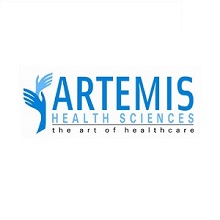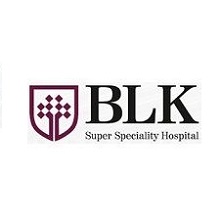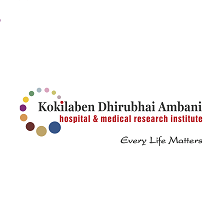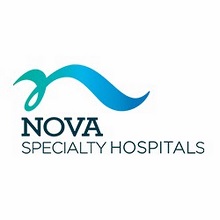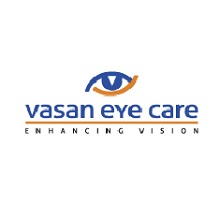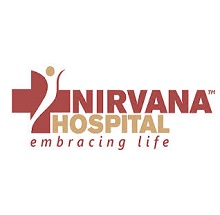Medical Treatments
- Urology Treatment
- Bariatric Obesity Surgery
- Oncology Cancer Treatment
- Cardiology
- Cosmetic Plastic Surgery
- ENT-Head And Neck Surgery
- Infertility Or IVF Treatment
- Joint Replacement Surgery
- Spine Surgery
- Organ Transplant
- Neurology
- Orthopedic Surgery
- Nephrology
- Stem Cell Therapy
- Endocrionology Or Diabetes
- 3D Liposuction Abdomen Lower Back
- Breast Lifting Implant
- Paediatrics Child Neonate
- Robotic Surgery
- Dentistry Dental Implant
- Gynaecology
- Pulmonology /Chest /Respiratory
- Dermatology And Venerelogy
- Opthalmology Eye Treatment
- Gastroenterology Or Hepatology
- Cyber Knife Radiosurgery
- Bone Marrow Surgery Transplant

Oncology Cancer Treatment
Cancer is typically caused by mutations (changes) to DNA within tissue cells. DNA is basically the inner structure of cells which is packaged into large number of individual genes, where each one contains set of instructions directing the cell as to the type of functions they should be performing, as well as the ability to grow & divide. Errors in these instructions cause the cell to stop normal function & which allows cells to become cancerous.
- What is Gene Mutation?
Gene mutations usually instruct healthy cells to undergo the following.
- Permit Rapid Growth – Gene mutation will instruct a cell to grow & divide much faster. This will eventually create numerous new cells which all bear the same mutation.
- Fail to Stop Uncontrolled Cell Growth – Normal cells generally understand when to stop growing so that they just have the right number of each type of cells. Cancerous cells however lose control due to loss of tumor suppressor genes which are meant to tell them as to when to stop growing. Mutation in tumor suppressor gene allows cancerous or abnormal cells to continue growing & accumulating as malignant tumors.
- Make Mistakes while Repairing DNA Errors – DNA repair genes task is to look for errors in cell’s DNA structures & make necessary corrections. Mutation in DNA repair gene means that other errors are not able to correct & which eventually lead cells to turn cancerous.
Although these mutations are the most common types found in cancer, there are many other gene mutations which may also be contributing to the cause of cancer.
- Causes of Gene Mutations
Gene mutations occur for several reasons including the following.
- Gene Mutations People are Born With – Some people are born with a genetic mutation which they inherit from parents. This type of mutation generally accounts for only a small percentage of cancers.
- Gene Mutations Occurring After Birth – Most gene mutations are found to occur after birth & are not inherited. There are a number of forces that cause gene mutations including chronic inflammation, hormones, obesity, carcinogens (cancer-causing chemicals), viruses, radiation, smoking & lack of exercise.
Gene mutations frequently occur during normal cell growth as well. However, human cells contain a mechanism which recognizes when such a mistake occurs & generally repairs such mistakes. Nevertheless, it occasionally misses some mistakes as well. This is what causes cells to become cancerous.
-
Gene Mutation Interaction with Each Other
Gene mutations which people are born with, alongside those which they acquire throughout the life, work together in order to cause cancer. Like for instance, when a person has inherited a genetic mutation which predisposes to cancer, it does not mean that he certain to acquire cancer. Instead they may still need one or more than one gene mutation in order to cause cancer. The inherited gene mutation would only make a person more likely than others to develop cancer when they are exposed to certain cancer-causing substances. However, it is still not clear as to how many mutations are required to accumulate to develop into cancer & it is more likely that it varies from one cancer type to another.
Signs & Symptoms of Cancer
Specific signs & symptoms caused by cancer will, however, vary depending upon which part of the patients’ body is affected. Nevertheless, some general signs & symptoms associated with cancer include the following.
- Fatigue
- Changes in weight, including unintended gain or loss
- Lump or an area with thickening which can be felt under skin
- Changes in skin, like darkening, yellowing or redness of skin, changes to existing moles or sores which refuse to heal
- Unexplained bruising or bleeding
- Persistent, unexplained night sweats or fevers
- Persistent, unexplained joint or muscle pain
- Persistent indigestion or discomfort after eating
- Hoarseness
- Difficulty in swallowing
- Persistent cough or difficulty in breathing
- Changes in bladder or bowel habit
It is time to seek an appointment with doctor when patients experience persistent signs & symptoms mentioned above. Even if one does not have any signs & symptoms but is worried about risk of cancer must consult a doctor & enquire about which cancer screening tests & procedures are appropriate for them to take.
Risk Factors for Developing Cancer
Although doctors have an idea of what can increase risk of developing cancer, majority of cancer cases are found to occur among people who do not have any known risk factors. Factors which are known to increase risk of cancer include the following.
- Age – Quite often, cancer takes decades to develop. This is why most people diagnosed with cancer are 65 years of age or older. Cancer is more common in older adults but is not an exclusively adult disease, it can be diagnosed at any age.
- Habits – Certain choices in lifestyle are known to increase risk of cancer. This includes smoking, drinking more than a single alcoholic drink a day especially for women of all ages & men older than 65 years of age, or two drinks daily for men of all ages, excessive exposure to sun, frequent blistering sunburns, being obese & indulging in unsafe sexual intercourse can contribute to cancer. However, people can change these habits in order to lower risk of cancer, even though some habits are far easier to change than others.
- Family History – There is only a small portion of cancers which are due to inherited conditions. When cancer is common in family, it is possible that mutations are being passed over from one generation to another. In such cases, the patient might be a candidate for genetic testing in order to find out if they have inherited mutations which might increase risk of certain cancers. However, it should be kept in mind that having inherited genetic mutation will not necessarily mean that the person will develop cancer.
- Health Conditions – There are some chronic health conditions like ulcerative colitis which can markedly increase the risk of developing certain types of cancers. Patients must, therefore, talk to doctors about this risk.
- Environment – The environment surrounding us contains certain harmful chemicals which can increase risk of developing cancer. Even for people who do not smoke might end up inhaling secondhand smoke when they go near people who smoke or people who are living with someone who smokes. Chemicals which are regularly used at home or in the workplace, like benzene & asbestos, are also associated with developing increased risk of cancer.
Preparing for Initial Appointment for Cancer
Most likely, patients would start by seeing the family doctor or general practitioner when they are having worrying signs & symptoms. Only when these doctors determine that the patient is having cancer that they will refer the case to one or more specialists including the following.
- Oncologists – doctors treating cancer
- Radiation Oncologists – doctors treating cancer with radiation
- Hematologists – doctors treating diseases of blood & blood-forming tissues
- Surgeons
Since appointments with these specialist doctors can be brief, & because there is plenty of ground to cover, it would be a good idea to stay prepared for the initial appointment. Following information is to help the patient stay prepared & know what to expect from the specialist doctor.
What Patients Should Do
- Write Down Questions to Ask the Doctor
- Prior to Initial Appointment – Patients should make sure to inquire if there is anything that they need to do in advance, like restrictions on diets for tests at the time of appointment.
- Write Down Signs & Symptoms – Patients should write down symptoms they are experiencing including any which may not seem related to the reason for which the initial appointment is scheduled.
- Write Down Key Personal Information – This information must also include any kind of major stresses or recent changes in life.
- Write Down Family History of Cancer – In case other members of the patients’ family have been earlier diagnosed with cancer, make a note of the type of cancer & as to how each person is related & the time when the person was diagnosed.
- Keep a List of Medications – This list should include supplements, vitamins & all types of medications the patient is currently taking.
- Consider Taking Along a Friend or Family Member – This is important because sometimes it is quite difficult to remember all the information which was given by the doctor during an initial appointment. A person who is accompanying the patient for the appointment would be able to remember what the patient has missed or forgotten.
Because time with specialist doctors is limited, it would be sensible to prepare a list of questions which can help the patient make most of the time during the initial appointment. Some basic questions regarding cancer which patients can ask doctors are listed below.
- What type of cancer am I having?
- At what stage is my cancer?
- Will I require any additional tests?
- What treatment options do I have?
- Will treatments be able to cure my cancer?
- What can I expect from treatment if my cancer cannot be cured?
- What potential side effects of treatments can I expect?
- Is there any one treatment which you think is best for me?
- How soon do I have to begin treatment?
- How will my treatment affect my daily life?
- Will I be able to continue working during treatment?
- Are there any experimental treatments or clinical trials available for my cancer?
- I am having other health conditions as well. How will I be able to manage them alongside my treatment for cancer?
- Is there any kind of restrictions which I need to follow?
- Do I need to see another specialist?
- Is there any generic alternative to medicines you are prescribing for me?
- Can you give me any brochures or printed materials which I can take with me?
- Which websites would you recommend I refer to for more information?
- What would determine my plan for follow-up visits?
In addition to these questions, the patient should feel free to ask as many other questions that come to their mind. The patient should not hesitate to ask questions which come to their mind.
-
What Doctors Usually Ask Patients
The specialist doctor is also likely to ask a number of questions to patients. Staying prepared to answer these will allow the patient more time to cover other points which they want to address. Specialist doctors usually ask the following questions.
- When was it that you first began to experience these symptoms?
- Have these symptoms been occasional or continuous?
- How severe are these symptoms?
- What is it, if anything that seems to improve symptoms?
- What is it, if anything that appears to worsen symptoms?
- Is there anyone else in the family who is having cancer?
- Did you have cancer earlier? If so, what type of cancer?
- Were you ever exposed to chemicals at home or the workplace?
- Do you smoke cigarettes or use tobacco?
- Were you ever diagnosed with hepatitis infection or human papillomavirus infection?
Tests & Diagnosis for Cancer
-
Cancer Screening
Diagnosing cancer in early stages most often provides the best chance for curing. Patients must keep this in mind & talk to the doctor about the type of cancer screening which may be most appropriate for them. Studies show that diagnosing cancer early for some cancers can in fact save lives. However, for other types of cancers screening tests are recommended only for people having increased risks. There are a variety of patient-advocacy groups & medical organizations having recommendations & guidelines for cancer screening. It would be sensible to review these guidelines with the doctor & who can help determine what is best for the patient based upon the risk factors for cancer.
-
Cancer Diagnosis
Doctors may use any one or more of these approaches in order to diagnose cancer.
- Physical Examination – Doctors would like to feel areas of the body for lumps which may indicate tumors. They may look for abnormalities like changes in the color of skin or enlargement of the organ which may indicate the presence of cancer.
- Laboratory Tests – Laboratory tests include blood & urine tests which can help doctors identify abnormalities caused by cancer. Like for example, people with leukemia would undergo a common blood test known as complete blood count which may reveal unusual type or a number of white blood cells.
- Imaging Tests – Imaging tests usually allow doctors to examine bones & internal organs in a noninvasive method. These tests are used in diagnosing cancer & may include x-ray, ultrasound, PET (positron emission tomography) scan, MRI (magnetic resonance imaging) scan, bone scan, CT (computerized tomography) scan among others.
- Biopsy – Surgeons usually collect samples of cell tissue during biopsy for testing in a laboratory. There are many ways of collecting these samples. The type of biopsy procedure which is right for the patient depends upon the location & type of cancer. However, in most cases it is biopsy which is the only method of definitely diagnosing cancer. Doctors will look for cell samples under microscope in a laboratory. While normal cells maintain uniformity with similar sizes & orderly organized, cancerous cells are less orderly & display varying sizes & without any apparent organization.
-
Cancer Stages
After cancer has been diagnosed, doctors will investigate to determine the stage (extent) of cancer. They will eventually use the stage of cancer for determining treatment options & chances for cure. Tests for staging & procedures will generally include imaging tests like x-rays, bone scans in order to see if cancer has spread to other areas of the body. Generally, cancer stages are indicated by Roman numerals from I through IV, where higher numerical indicate advanced cancers. However, in some cases, stages of cancer are also indicated by using words or letters.
Treatment & Drugs for Cancer
Many types of treatments are available for cancer. Ideal treatment option will, however, depend upon several factors like the type & stage of cancer, general health of the patient & their preferences. The doctor & the patient can together weigh risks & benefits of each cancer treatment in order to determine which option is best in a particular case.
Goals of Cancer Treatment
Cancer treatments generally have different objectives including the following.
- Cure – Goal of these treatments is to achieve a cure for cancer by allowing the patient to live a normal life span. However, this may or may not be possible & will depend upon specific situations.
- Primary Treatment – Goal of primary treatment is to totally remove cancer from the body or completely destroy cancerous cells. Any type of cancer treatment can be utilized as primary treatment, but the most common primary cancer treatment for cancer is surgery. However, in the case of cancer is particularly sensitive to chemotherapy or radiation therapy, the patient may receive one of these therapies as primary treatment.
- Adjuvant Treatment – Goal of adjuvant therapy is to kill cancerous cells which still remain after primary treatment in order to reduce chances that cancer may recur. All treatments for cancer can be utilized as adjuvant therapy. Most common types of adjuvant therapies include hormone therapy, radiation therapy & chemotherapy.
- Palliative Treatment – Goal of palliative treatments is to help relieve side effects of cancer treatment or sometimes signs & symptoms caused by cancer itself. Hormone therapy, chemotherapy, radiation therapy & surgery can all be used for relieving signs & symptoms. Medications may also be utilized for relieving symptoms like shortness of breath & pain. Moreover, palliative treatment is quite often used at the same time as other treatments intend to cure cancer.
Types of Cancer Treatments
There are many tools available for doctors when it comes to treating cancer. Treatment options for cancer include the following.
- Surgery – This involves physical removal of cancerous tissues from the body. Basically a primary approach used in treatment of most isolated solid cancer cases, it attempts to remove the entire diseased mass along with, in certain cases, the lymph nodes from affected areas. Surgery also confirms diagnosis (biopsy) while determining how advanced (staging) cancer has progressed.
- Chemotherapy – Chemotherapy utilizes special drugs to destroy cancerous cells. Treatment of cancer with help of one or more cytotoxic anti-neoplastic drugs is called Chemotherapy. Largely used so as to shrink & eliminate tumors, Chemotherapy treatment prevents infected areas from spreading. Result of Chemotherapy however depends upon type & stage of cancer. Chemotherapy in combination with surgery has proved effective in a number of cancer cases.
- Radiation Therapy – Radiation therapy can come from a machine outside the body (external beam radiation) or it can also be placed inside the body, like in brachytherapy. Involving the use of ionizing radiation with help of which the DNA of the cancerous tissue is destroyed, thus destroying cancerous cells in the process. Considered as a local treatment, low energy x-rays are generally used for treating skin cancers while higher energy x-ray beams are used for treatment of cancers within the body. Radiation Therapy treatment is often aimed to shrink tumors before surgery, prevent tumors from returning after surgery & for relieving pain (palliation).
-
Stem Cell Transplantation –
- Stem cell transplantation is also called bone marrow transplantation. Bone marrow basically is the material inside bones which makes blood cells from blood stem cells. Stem cell transplantation can use the patients’ own stem cells or stem cells coming from a matching donor. Stem cell transplantation also allows doctors to utilize high doses of chemotherapy for treatment of cancers. This is also utilized to replace diseased bone marrow.
-
Immunotherapy –
Also known as Biologic Therapy, it involves using a variety of therapies to stimulate disease fighting mechanisms within the body. Interferon & colony-stimulating factors are two good examples which restore the immune system to fight cancers. Other specific types of biological therapies like monoclonal & vaccines are also being developed by researchers.
-
Hormone Therapy –
There are some types of cancers which are fueled by hormones found in the body. Best examples of these include prostate cancer & breast cancer. Removing these hormones from the body or even blocking their effects can cause cancerous cells to stop growing.
-
Targeted Drug Therapy –
Targeted drug treatments generally focus on specific abnormalities within cancerous cells which eventually allow them to survive.
-
Moh’s Surgery –
This is a precise surgical technique utilized in the treatment of skin cancers. Mohs’ Surgery involves progressive removal & examination of layers of cancer-containing skin until only cancer-free skin remains. Also known as Mohs’ Micrographic Surgery, the goal of this surgical procedure is to remove most of skin cancer while delivering minimal damage to the surrounding healthy tissue. Moreover, it is generally performed as an outpatient procedure under local anesthesia.
Clinical Trials –
Clinical trials are basically studies which are utilized to investigate newer methods of cancer treatments. There are thousands of cancer clinical trials underway at any point in time. Moreover, there are other treatments which may also be available for patients depending upon the type of cancer.
Common Types of Cancers
Cancer is commonly found to affect all parts & organs of the body including kidneys, prostate, pancreas, ovaries, thyroid, lung, liver, cervix, breasts, bladder, brain & bone. Other types of cancers plaguing human health include oropharyngeal cancer, retinoblastoma, leukemia, Hodgkin’s lymphoma, gastrointestinal cancer, esophageal cancer, endometrial cancer & colorectal cancer. Reconstructive surgery & breast cancer most often go hand-in-hand & treatments in India are excellent in both cases.
-
Prostate Cancer
Prostate cancer is one of the most common dreaded non-skin cancer affecting men across nationalities around the world. Prostate cancer surgery in India is low cost yet best in quality including robotic surgery. Treatments of cancer in India include a variety of procedures to deliver successful & pain-free results. Most distinguished surgeons & best cancer hospitals in India are technically adept & aware of emerging trends. Apart from open surgeries, minimally invasive surgery alternatives & a variety of therapies in India now offers High Intensity Focused Ultrasound (HIFU) to treat prostate cancer. This new technique does not require removing the entire prostate gland. Instead, ultrasound beams are passed by robotic arms through rectum to deliver, destroy & evaporate all prostate cancer cells.
-
Liver Cancer
Liver filters blood continuously & which in turn circulates converting nutrients & drugs absorbed from digestion as ready-to-use chemical elements. Apart from this liver also performs many other important functions like removing toxins & chemical wastes from the blood stream. Since all blood must essentially pass through the liver, it becomes susceptible to cancer cells which are often found to travel within the bloodstream.
-
Pancreatic Cancer
Beginning in the tissues of pancreas itself, prognosis of pancreatic cancer is difficult even if diagnosed in early stages. It typically spreads rapidly, which is why it is a major cause of cancer death & is seldom detected in early stages. Signs & symptoms of disease may not appear until cancer is in advanced stages. Pancreatic enzymes aid digestion & the hormones they secrete regulate metabolism of sugar, therefore complete surgical removal is almost impossible.
-
Gallbladder Cancer
Though quite uncommon, gallbladder cancer begins in the gallbladder & chances of cure are very good if detected in early stages. It is however very difficult to diagnose in early stages as no specific signs or symptoms are produced. Gallbladders store bile produced by the liver, & are relatively hidden under cover, which makes it fairly easy for gallbladder cancers to go undetected.
-
Cervical Cancer
Cervix is located at the lower part of uterus opening into the vagina. Early detection is the key to successful treatment & can be easily diagnosed through a Pap test. It is one of the most common types of cancer found among women worldwide. Caused by a virus named Human Papillomavirus or HPV which can spread through sexual contact, not all types of HPV though are found to cause cervical cancer.
-
Ovarian Cancer
Beginning in the ovary, ovarian cancer cells have the ability to spread or invade other parts of the body. Warning signs of this cancer include cramps or ongoing pains in belly or back, nausea, bloating & abnormal vaginal bleeding. However, risk of ovarian cancer increases among women who have ovulated more during their lifetime. Largely depending upon the stage of cancer, treatment for ovarian cancer includes chemotherapy or surgery.
-
Bone Cancer
This is an uncommon type of cancer which can begin in any bone of the body. However, most commonly Bone Cancers are found to affect long bones of the arms & legs. Many types of bone cancers exist, some of which primarily occur among children, while others mostly affect adults.
-
Oral Cancer
Oral Cancers largely appear as growth or sore in mouth which do not go away. Oral cancers generally include cancer of the tongue, lips, cheeks, floor of mouth, soft & hard palate, pharynx & sinuses which can be threatening if not diagnosed & treated in early stages. Some oral cancer symptoms include thickenings, swellings, bumps or lumps, crusts, rough spots, eroded areas on gums, lips or other areas inside mouth. Velvety red, white or speckled patches, unexplained bleeding, numbness, tenderness or pain, or loss of feeling in face, mouth or neck areas are also possible signs.
-
Leukemia (Blood Cancer)
Blood Cancers generally affect function & production of blood cells. Stem cells of bone marrow mature to develop into three types of blood cells, i.e. platelets, white blood cells (WBC) & red blood corpuscles (RBC). Most blood cancers start in bone marrow where normal blood cell development process is interrupted by uncontrolled growth of abnormal blood cells. These abnormal cancerous blood cells prevent blood from performing many primary functions like preventing serious bleeding or fighting infection.
-
Retinoblastoma
Retinoblastoma is cancer of the eye which begins in the retina. While affecting the sensitive lining on the inside of the eye, it is most common among young children but can also rarely occur in adults. Occurring in one or both eyes, common retinoblastoma signs include eye swelling, eye redness & eyes appearing to look in different directions & appearance of white color in pupil when light is shown in eye. Gene mutations increasing risk of retinoblastoma & many other cancers are also passed from parents to children. Hereditary retinoblastoma is passed in autosomal dominant pattern allowing a 50 percent chance of children developing this cancerous condition.
-
Hodgkin’s Lymphoma
Hodgkin’s lymphoma of Hodgkin’s disease is a type of lymphoma which is cancer starting in white blood cells known as lymphocytes. Lymphocytes are basically part of the human immune system. This cancer starts when cells in the body start to grow out of control. Cells located in nearly any areas of the body can become cancerous & spread to other parts of the body in Hodgkin’s disease.
-
Gastrointestinal Cancer
Known as GI in short, gastrointestinal cancer is a term applied to a group of cancers which affect the digestive system. GI cancers generally include cancers of the anus, bowels, including rectum, colon or large intestine, small intestine, stomach, pancreas, liver, gallbladder & esophagus. GI cancers are the most common types of cancers affecting humans. More than 24,000 Australians alone are diagnosed with these types of cancers each year & almost 33 Australians are found to die of these each day. Moreover, GI cancers do not have any gender bias or discriminate between men & women.
-
Esophageal Cancer
Esophageal cancer is generally a disease in which cancerous (malignant) cells are formed in the tissues of esophagus. Esophagus is the muscular tube which moves liquids & food from throat to stomach. Most common types of esophageal cancers in humans include adenocarcinoma & squamous cell carcinoma. Squamous cell carcinoma starts in flat cells lining the esophagus while adenocarcinoma starts in cells which make & release fluids & mucus. Heavy use of alcohol & smoking are found to increase risk of esophageal squamous cell carcinoma. Barrett esophagus & gastroesophageal reflex are generally found to increase risk of developing esophageal adenocarcinoma. Moreover, esophageal cancer is quite often diagnosed at advanced stages since there are no early signs & symptoms of esophageal cancers.
-
Endometrial Cancer
Endometrium basically is the lining of uterus which is a hollow muscular organ located in the pelvis region of women. This is where the fetus grows; uterus is about 3 inches-long in most non-pregnant women. The narrow lower end of the uterus is known as the cervix & it leads to the vagina. Endometrial cancer is therefore a disease in which cancerous (malignant) cells are found to form within the tissues of endometrium. Factors increasing the risk of endometrial cancer include diabetes mellitus, high blood pressure & obesity. Taking estrogen alone without progesterone or taking tamoxifen for blood cancer is found to increase risk of developing endometrial cancer. Signs & symptoms of developing endometrial cancer include pain in the pelvic region or unusual vaginal discharge. Tests & examination of endometrium are generally used in detecting & diagnosing endometrial cancers. Moreover, there are certain factors which affect chance of recovery (prognosis) & treatment options for endometrial cancer.
-
Colorectal Cancer
Cancers which occur in the rectum or colon are called colorectal cancer. Colon & rectum are parts of the large intestine & which is located in the lower part of the digestive system. During the course of digestion, food first moves through the stomach & small intestine before reaching colon. Colon then absorbs water & nutrients from food & stores the remaining waste matter as stool. Stools move from colon into rectum before leaving the body. Most colorectal cancers are found to be adenocarcinomas. Adenocarcinomas are cancers which begin in cells which make & release fluids & mucus. Most often colorectal cancers begin as growths known as polyps. These usually form in the inner walls of rectum or colon & some of these polyps can become cancerous over time. However, finding & removing these polyps can prevent colorectal cancers. Fatalities from colorectal cancer have decreased with use of fecal occult blood tests & colonoscopies which check for blood in stool.
Risks & Complications of Cancer & Cancer Treatments
Cancer & cancer treatments can cause a number of complications including the following.
-
Pain –
Pain is usually either caused by cancer or by cancer treatments. However, not all cancers are painful. Moreover, medications & other approaches can effectively deal with cancer-related pains.
-
Fatigue –
Fatigue in cancer patients has several causes, but can in most cases be properly managed. Fatigue which is associated with radiation therapy or chemotherapy treatments are common & most often temporary.
-
Difficulty in Breathing –
Cancers or cancer treatments often cause a feeling of shortness of breath. However, treatments generally bring relief.
-
Nausea –
There are certain cancers & cancer treatments which cause nausea. However, doctors can quite often predict if the treatment is likely to cause nausea. Moreover, medications & other treatments most often help in preventing or decreasing nausea.
-
Diarrhea or Constipation –
Cancer & treatments for cancer are commonly found to affect bowels & cause diarrhea or constipation.
-
Weight Loss –
Cancer & cancer treatments are also found to cause weight loss. Cancer usually steals nutrition from normal cells & thereby deprives them of nutrients. Moreover, this is often not affected by the number of calories or the type of food which is eaten. Although this is difficult to treat & in most cases using artificial nutrition through tubes into vein or stomach also does not help change loss of weight.
-
Chemical Changes in Body –
Quite often, cancers can upset the normal chemical balance in body & thereby increase the risk of serious complications. Signs & symptoms caused by chemical imbalance due to cancer may include confusion, constipation, frequent urination & excessive thirst.
-
Brain & Nervous System Problems –
Cancer masses or tumors can press upon nearby nerves so as to cause pain & loss of function of one part of the body. This is particularly true about cancers involving brain & which can cause headaches & stroke-like signs & symptoms including weakness on one side of the body sometimes.
-
Unusual Immune System Reactions –
Body’s immune system in some cases of cancer might react to the presence of cancer by attacking healthy cells. Known as a paraneoplastic syndrome, these are rare reactions which can lead to a variety of signs & symptoms like seizures & difficulty in walking.
-
Spreading of Cancer –
With the advancement of cancer, there are chances that it may spread (metastasize) to other parts of the body as well; Locations where cancer can spread generally depends upon the type of cancer.
-
Recurrence of Cancer –
Cancer survivors usually have risk of recurrence of cancer. However, some cancers are more likely to recur than other cancers. Patients should therefore inquire with doctors about what they can do in order to reduce risk of cancer recurrence. Doctors may also be able to devise a follow-up care plan for the patient after treatment. This plan could well include periodic scans & examinations in months & years following treatment to check for cancer recurrence.
Alternative Medicine for Cancers
Although no alternative cancer treatments have proven to cure cancer, but they definitely help cancer patients in coping with side effects of cancer & cancer treatments, including common side effects like pain, nausea & fatigue. Cancer patients should therefore talk to their doctors about which alternative medicine option could offer some benefit. They should also discuss as to whether these therapies are safe or whether they would interfere with the primary cancer treatment. Some of these alternative medicine options which are found to be helpful include the following.
- Acupuncture
- Massage
- Hypnosis
- Relaxation Techniques
- Meditation
- Yoga
Coping & Support for Cancer Patients
Diagnosis of cancer can change the patients’ life forever. Each patient finds his/her own way of coping with physical & emotional changes which cancer brings. However, the initial diagnosis of cancer can sometimes be difficult as patients do not know what to do next. Here are some ideas to help the patient cope up with cancer.
- Learn enough about cancer to make informed decisions about caring – Patients should ask questions to doctors about cancer including treatment options & prognosis too if they feel comfortable. Learning more about cancer will make them feel more confident while making decisions for treatment.
- Keep family & friends close – Keep close relationships strong will help the patient deal with cancer. Family & friends can provide practical support which patients need, like helping take care of the house while the patient is in the hospital. Family & friends can also serve as an emotional support when patients feel overwhelmed by cancer.
- Find someone to speak to – Finding a good listener who is willing to listen to the patient talk about fears & hopes can also be a family member or friend. Concern & understanding of a cancer support group, clergy member, medical social worker or a counselor can also be helpful. Cancer patients can also ask doctors about support groups located in the area. Other sources of information & support can be found online within the world-wide-web.
Preventive Measures for Cancer
Prevention always is a great option, but there is no certain way of preventing cancer. However, doctors have identified many ways of reducing risks for cancer. Some of these are mentioned below.
-
Quit Smoking –
Cancer patients who smoke must quit & cancer patients who do not smoke should not start. Smoking is linked to many types of cancers & not just lung cancer. Stopping smoking now will reduce the risk of cancer in future as well.
-
Avoiding Excessive Exposure to Sun –
Risk of skin cancer is increased with excessive exposure to harmful ultraviolet (UV) rays from the sun. Limiting direct sun exposure by applying sunscreen, wearing protective clothing & staying in shade can be helpful.
-
Eating a Healthy Diet –
Choose a diet which is rich in vegetables & fruits. Select lean proteins & whole grains.
-
Exercising Most Days of the Week –
Regular exercising is linked to reducing the risk of cancer. It is ideal to aim for at least 30 minutes of exercising most days of the week. Especially for people who have not been exercising regularly, now is a good time to start out slowly & work their way up to 30 minutes or longer if possible.
-
Maintaining Healthy Weight –
Being obese or overweight can increase the risk of developing cancer. It would be sensible to work towards achieving & maintaining a healthy weight through a combination of regular exercising & consuming a healthy diet.
-
Moderate Alcohol Consumption –
Moderation is the key for people who choose to drink alcohol. They should limit themselves to one drink a day for women of any age or men older than 65 years, or two drinks a day for men 65 years or younger.
-
Schedule Cancer Screening Examinations –
It is best to talk to the doctor about the types of cancer screening examinations which are best, based on individual risk factors.
-
Ask Doctors about Immunizations –
There are certain viruses which increase risk of cancer. Immunizations can therefore help prevent these viruses, including hepatitis B which increases risk of liver cancer & human papillomavirus (HPV) increasing risk of cervical cancer & other cancers. It would be best to consult doctors as to whether immunization against these viruses is appropriate & if they can be helpful.
Medical Tourism in India for Cancer Treatments
India is a specialist destination for cancer treatment procedures. Oncology treatment costs in India are affordable & just a fraction of what patients normally pay in the western developed countries. Offering high-tech medical solutions to a large variety of healthcare problems, it is no wonder that India is one of the most favored global health care destinations today for a variety of cancer treatments. Healthcare facilities in India are not just affordable, but technically sound & at par with techniques adopted in advanced nations. Most common options include treatments for lymphoma, bladder cancer, bone cancer, brain cancer, breast cancer, colon cancer, liver cancer, blood cancer, lung cancer, oral cancer, gums cancer, pancreatic cancer, kidney cancer, gallbladder cancer, gastric cancer, ovarian cancer, stomach cancer, cervical cancer, orthopedic cancer, head & neck cancer & eye cancer. Other varieties of oncology procedures include T-Cell leukemia treatment, acute myeloid leukemia or AML treatment, chronic myeloid leukemia or CML treatment & chronic lymphocytic leukemia or CLL treatment. India has proven to be an excellent cancer healthcare destination for brain tumor surgery & T-Cell leukemia treatments as well.
Affordable Treatments for Cancer with AVAN MediTour
Oncology treatment in India is upgraded & one of the best international patients can get. Apart from world-class, well-equipped healthcare facilities to deliver, best cancer surgeons in India are globally renowned experts in the field. Cancer surgery in India is not only among the best in the world but is also comparatively much cheaper to most western countries. AVAN MediTour Medical Tourism is associated with the best cancer hospitals in India. Medicine for cancer is a special subject & which requires proven records to be trusted.
Types Of Cancer Treatment |
No of Ward days |
Procedure Cost (USD) |
|---|---|---|
| Advanced Oral Cancer Treatment – Surgery, Radiation and / or Chemotherapy cost in | 7 days | 4500-7500 |
| Whipple Procedure for Pancreatic Cancer cost in India | 14-21 days | 8000 |
| Total Pancreatectomy for Pancreatic Cancer cost in India | 14-21 days | 8000-12000 |
| Radical Hysterectomy for Pancreatic Cancer cost in India | Depends upon the treatment | 5000 |
| Advanced Esophageal Cancer Surgery cost in India | Depends upon the treatment | 6500 to 8500 |
| Ovarian Cancer: Radiation Therapy cost in India | Depends upon the treatment | 3000 |
| Ovarian Cancer: Radiation Therapy cost in India | Depends upon the treatment | 4000 |
| Ovarian Cancer:Radical Hysterectomy cost in India | Depends upon the treatment | 5000 |
| Brain Cancer Surgery- Craniotomy cost in India | 5-7 days | 9000 |
| Brain Cancer Surgery – Micro Surgery cost in India | Depends upon the treatment | 12000 |
| Brain Cancer Surgery – Gamma Knife Surgery cost in India | Depends upon the treatment | 6500 |
| Laparoscopic Minimally Invasive Thyroid Surgery cost in India | 2 | 6000 |
| Breast Cancer Treatment – Complete Medical Evaluation | 2 | 1800 |
| Breast Cancer Treatment – Conservative or Modified Radical Mastectomy in India | Depends upon the treatment | 4500 |
| Colon Cancer Treatment – Complete Medical Evaluation | 2 Days | 1500 |
| Laproscopic Radical Prostatectomy Surgery cost in India | Depends upon the treatment | 7000 |
| HIFU Treatment for Prostate Cancer Surgery cost in India | Depends upon the treatment | 9500 |
| Colon Cancer Treatment – Cryosurgery cost in India | Depends upon the treatment | 7500 |
| Colon Cancer Treatment – Polypectomy cost in India | Depends upon the treatment | 3000 |
| Colon Cancer Treatment – Bowel Diversion Surgery cost in India | Depends upon the treatment | 6000 |
| Bone cancer treatment cost in India | 7-14 Days | 6500 to 9500 |
| Cervical cancer treatment cost in India | Depends upon the treatment | 6000 to 7000 |
| Gallbladder cancer treatment cost in India | 7 days | 5500 to 7000 |
| Head and neck cancer treatment cost in India | 7 days | 5500 -7000 |
| Leukemia cancer Treatment cost in India | 14-21 days | 6000-9000 |
| Liver cancer treatment cost in India | 14-21 days | 8000-12000 |
| Lung cancer treatment cost in India | 14-21 days | 8000-12000 |
| Lymphedema treatment cost in India | 14-21 days | 6000-9000 |
| Lymphoma Cancer Treatment cost in India | 14-21 days | 7000-9000 |
| Prostate cancer treatment cost in India | 14-21 days | 4000-6000 |
| Stomach cancer treatment cost in India | 14-21 days | 8000-12000 |
| Uterine cancer treatment cost in India | 7 Days | 6000-7000 |
| Radio Frequency Ablation for Liver Cancer treatment cost in India | 8-12 Days | 14000-21000 |
Inclusions and Exclusions
INCLUSIONS
1. Airport Pick-up on Arrival in India2. Airport Drop on Departure from India
3. Cost of initial Evaluation and Diagnosis
4. Cost of the Surgery or Treatment
5. Cost of applicable one implant/prosthesis
6. OT Charges and Surgeon’s Fees
7. Consultation Fees of the Doctor for the concerned specialty
8. Nursing and Dietician’s Charges
9. Hospital Stay for the specified number of days in the respective room category as mentioned against the package
10. Hospital stay includes stay of the patient and one attendant for the duration of stay mentioned against the package
11. Routine investigations and medicines related to the surgery or treatment.
12. Food for the patient and the attendant for the specified number of days as mentioned against the package
13. Travel Assistance/Medical Visa Invite/FRRO/ Visa Extensions
14. Assistance in finding right budget hotel or guest house accommodation.
15. Issuing Invitation Letter for Medical Visa.
EXCLUSIONS
1. All expenses for stay beyond the specified number of days2. Cross Consultations other than the specified specialty
3. Use of special drugs and consumables
4. Blood products
5. Any other additional procedure
6. Post discharge consultations, medicines, procedures and follow-ups
7. Treatment of any unrelated illness or procedures other than the one for which this estimate has been prepared
8. Travel Expenses and Hotel Stay
DISCLAIMER:
* Quote given is ONLY for the treatment in the hospital and DOES NOT include food as well as the accommodation cost outside the hospital.
* The quote may vary in case of co-morbidities, which are associated medical conditions and an extended stay.
* The treatment suggested is as per the information and reports provided to us. The line of treatment may differ according to the additional and comprehensive details asked by our consultants.
* The prices quoted are only indicative and may differ. They can be confirmed only after the patient is assessed by a doctor.
* The complete treatment cost has to be deposited in advance after the finance counseling for the patient is done at the hospital




